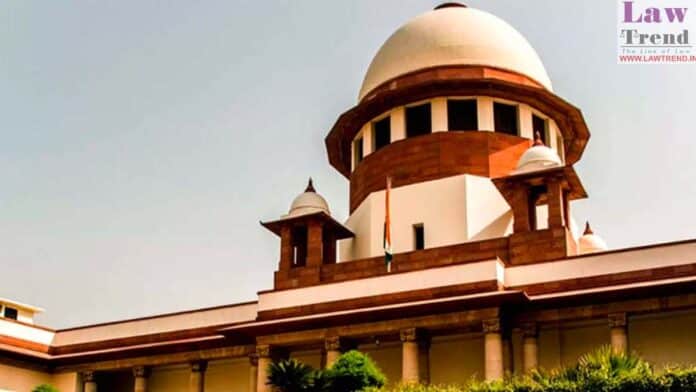The Supreme Court has sought the response of the Centre on a plea seeking transfer of a PIL on surveillance systems pending before the Delhi High Court to the apex court.
The PIL has claimed that the citizens’ right to privacy was being “endangered” by surveillance programmes like the Centralised Monitoring System (CMS), Network Traffic Analysis (NETRA) and National Intelligence Grid (NATGRID).
A bench of Justices BR Gavai and Prashant Kumar Mishra had on October 10 issued notice to the Centre and sought its response in four weeks.
It listed the transfer petition filed by NGO, Centre for Public Interest Litigation (CPIL) and Software Freedom Law Centre (SFLC) on November 10.
The PIL filed by CPIL and SFLC, which is pending before the high court, has claimed these surveillance systems allow central and state law enforcement agencies to intercept and monitor all telecommunications in bulk which is an infringement of the fundamental right to privacy of individuals.
The petition, filed through advocate Prashant Bhushan, has contended that under the existing legal framework there is an “insufficient oversight mechanism” to authorise and review the interception and monitoring orders issued by state agencies.
The two NGOs have sought directions to the Centre to permanently stop the execution and the operation of the surveillance projects, CMS, NETRA and NATGRID, which allows for bulk collection and analysis of personal data.
The petition submitted that CMS is a surveillance system under which all forms of communications, like telephone calls, Whatsapp messages and emails, are intercepted and monitored. NETRA, developed by the Centre for Artificial Intelligence (CAIR), is a lab under the Defence Research and Development Organization (DRDO) to monitor internet traffic for the use of key words such as attack, bomb, blast or kill in tweets or status updates on social media platforms, emails or blogs, the plea has submitted.
The petition has claimed that NETRA is “essentially a massive dragnet surveillance system designed specifically to monitor the nation’s Internet networks, including voice over internet traffic passing through software programs such as Skype or Google Talk besides write-ups in tweets, status updates, emails, instant messaging transcripts, internet calls, blogs and forums.
Also Read
NATGRID, the plea claims, is “a counter-terrorism initiative to be undertaken on public-private partnership that will utilise technologies like Big Data and advanced analytics to study and analyse huge amounts of data and metadata related to individuals from various stand-alone databases belonging to various agencies and ministries of the Indian government”.
Under the NATGRID system, tax and bank account details, credit card transactions, visa and immigration records and itineraries of rail and air travel would be monitored, the plea has submitted.
The PIL has sought the constitution of a permanent independent oversight body, judicial or parliamentary, for issuing and reviewing lawful interception and monitoring orders/warrants under the enabling provisions of the Indian Telegraph Act, 1885 and the Information Technology Act, 2000.




